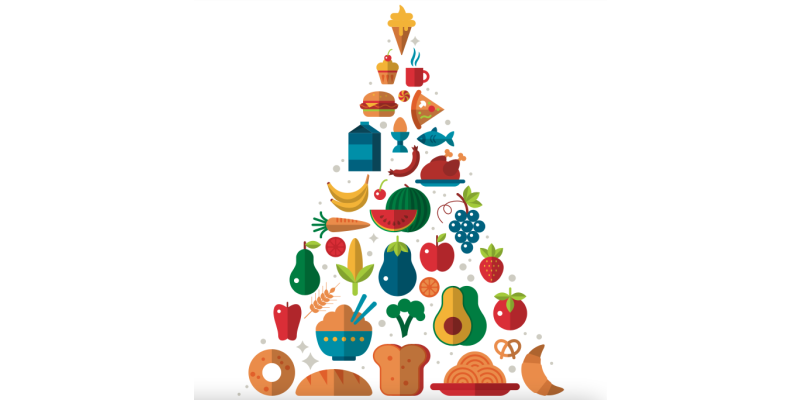By Emmy Bawden
When we think about the word diet today, what usually comes to mind is a restrictive weight-loss plan. But adopting a specific diet, or way of eating (and living!), doesn’t have to be only about that. These four diets (unlike fad diets) offer evidence-based ways of eating that boost your health, are sustainable to follow and allow for flexibility.
DASH DIET
Named as one of the best diets eight years in a row, the DASH (Dietary Approaches to Stop Hypertension) Diet was developed over 20 years ago with support from the National Heart, Lung, and Blood Institute to prevent high blood pressure. This diet has also been shown to reduce the risk of type 2 diabetes, stroke and adverse cardiac events like heart attacks.
Reducing sodium intake to below 2,300mg/day is a main component, so although it’s time-consuming, learning to read nutrition labels for sodium content is key. Even so, the benefits of the DASH Diet have been seen even without changing sodium intake! This is because it includes sources of potassium, magnesium and calcium, all which help relax and/ or regulate your blood vessels to lower blood pres- sure. It also includes intake of fiber from whole grains and beans, polyphenol- rich fruits and veggies, low-fat dairy and lean protein.
MIND DIET
The Mediterranean-DASH Intervention for Neurodegenerative Delay (MIND) Diet is an evidence-based way of eating associ- ated with slowing cognitive decline and reducing dementia risk. It combines aspects of both the DASH Diet and similarly structured Mediterranean Diet. One study showed that the cognition of people following this diet was equivalent to being 71⁄2 years younger.
Focus on including 10 foods packed with brain-benefitting nutrients like vitamins B, C, D, E and DHA daily. Examples include green, leafy veggies (once daily), berries (twice per week), nuts (1 oz. five times per week), whole grains (three times per day), beans (one-half cup four times per week), fatty fish like salmon (once per week), poultry (twice per week), and olive oil as your main oil. Next, limit your intake of butter (less than 1 Tbsp per day), cheese (less than once per week), sweets (less than four times per week), red meat (less than three times per week), and fried foods (less than once per week). The best part: research suggests you don’t need to follow this diet 100% to still lower your risk for cognitive decline and dementia.
VEGAN DIET
A vegan diet involves avoiding all animal-based foods in favor of grains, beans and legumes, fruits, vegetables, nuts and seeds. There are several reasons someone might follow a vegan diet, including environmental concerns, humanitarian and ethical values, religious and cultural practices, and/or overall health.
Research has shown a bounty of positive health effects, including improved cholesterol; lowered risk of heart disease, metabolic syndrome and diabetes; and overall cancer inci- dence (especially prostate and gastrointestinal).
The downsides are that vegan diets typically lack iron, calcium, vitamins B12 and D, zinc and iodine, and planning a nutritionally-complete (and enjoyable!) vegan diet can often be time-consuming and expensive.
FLEXITARIAN DIET
Created by a registered dietitian, “flexitarianism” involves eating more plants and less meat to improve overall health and lower your risk of heart disease, diabetes and cancer. This way of eating encourages adding five food groups to your diet. The first group is called “new meat,” which includes proteins like eggs, tofu, legumes and nuts. It’s recommended to eat more of these, while reducing your meat and poultry intake.
The four remaining groups are fruits and veggies, whole grains, dairy and seasonings. U.S. News and World Report has ranked this non-restrictive and flexible diet among its top spots for years. Semi-vegetarian diets like this are associated with improved cardiovascular risk factors and diabetes management. While finding ways to eat plant foods that you enjoy takes considerable effort, finding easy-to-follow flexitarian recipes online is a breeze.



